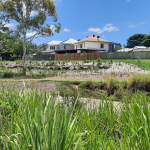Upcoming Events

Vegetated Stormwater Assets require maintenance in order to deliver their stormwater management benefits. Maintaining vegetated stormwater assets doesn’t have to be difficult. This one day course provides detailed guidance on how to maintain bioretention systems and constructed wetlands as easily and cost effectively as possible.
By the end of this course participants will:
- be aware of the activities required to maintain bioretention systems and constructed stormwater wetlands.
- have an appreciation of the cost of maintaining bioretention systems and constructed stormwater wetlands.
- understand how bioretention design affects long term maintenance requirements, and how to design for low long term maintenance.
- be inspired by simple ways to rectify underperforming vegetated stormwater assets.
Presenters:
This course is presented by Jack Mullaly (Healthy Waterways)
Who should attend?
Those involved in designing and maintaining vegetated stormwater assets, including civil and landscape designers, development assessment officers, stormwater asset managers and maintenance coordinators.
*Click here for further details and registration. Discount registration is available to Stormwater Queensland members.
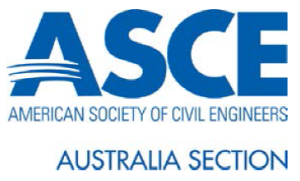
The ASCE Australia Section will be holding a Master Class in Brisbane on the Principles of Streambank Analysis and application of the Bank Stability and Toe-Erosion Model (BSTEM). It will be presented by Dr Andrew Simon.
The master class will be held in the Cardno Training Room, Level 11, Green Square North Tower, 515 St Pauls Terrace, Fortitude Valley on Monday 25 May 2015.
Please click here for the attached flyer that describes the Master Class Program.
Dr Andrew Simon is a geomorphologist with 30 years of experience in mechanistic analysis of unstable-channel systems, streambank erosion, cohesive-sediment entrainment, the role of riparian vegetation, “reference” sediment-transport rates, and river restoration, working on projects throughout the United States, in Queensland, NSW, New Zealand and elsewhere around the globe.
He has advised that the mathematics is cursory and is used to understand the processes. The master class works for non-engineers as well. He has received excellent reviews from managers, biologists and landscape architects alike.
It is open to all who would like to attend the Master Class
Registrations are open until Thursday 21 May 2015. Don’t miss your opportunity to attend. To Register click here.

On behalf of Stormwater Queensland, we are pleased to announce that we are holding our very first Winter School Program this August. The Stormwater Queensland August Winter School will feature Workshops conducted by Grant Witheridge (Catchment and Creeks), Jack Mullaly and Andrew O’Neill (Healthy Waterways). The school will be held over a period of five days and allows you to choose individual daily workshops, which suit your needs and to improve your knowledge and skills in stormwater quantity and quality design.
To register for one or more of the workshops, to be held as part of the Stormwater Queensland August Winter School, click here.
Workshop Schedule
| Monday, 31st August | Workshop 1 – Application of the Rational Method and Aspects of Piped Drainage Design Presenter: Grand Witheridge |
| Tuesday, 1st September | Workshop 2 – Water Sensitive Urban Design (WSUD) Principles and Concept Design Presenters: Jack Mullaly and Andrew O’Neill |
| Wednesday, 2nd September | Workshop 3 – Design of Stormwater Outlets and Design of Fauna Sensitive Waterway Crossings Presenter: Grant Witheridge |
| Thursday, 3rd September | Workshop 4 – Water Sensitive Design (WSUD) Detailed Design Presenters: Jack Mullaly and Andrew O’Neill |
| Friday, 4th September | Workshop 5 – Treatment of Creek Erosion and Natural Channel Design Presenter: Grant Witheridge |
Workshop Outlines
The following Workshops will be presented over the five days of the Stormwater Queensland August Winter School:
Workshop 1 (Part 1) – Application of the Rational Method
Introduction to the various hydrological methods used to determine design discharge or small to medium catchments. Detailed discussion is provided on the application of the Rational Method and the various procedures as presented within the Queensland Urban Drainage Manual for the determination of time of concentration. It is hoped that the Workshop will also provide students with an update on AR&R attitude to the continued use of the Rational Method in drainage design.
Workshop 1 (Part 2) – Aspects of Piped Drainage Design
This workshop has been developed for practitioners who have past experience in stormwater drainage design. Discussion is provided on the reasoning behind many of the design rules used in pipe drainage design. The workshop reviews hydraulic gradeline (HGL) analysis, structure losses, methods to achieve a reduction in pit losses, and the hydraulics of inlet structures.
Workshop 2 – Water Sensitive Urban Design (WSUD) Principles and Concept Design
This workshop will focus on the application of WSUD to reduce the impact of urbanisation and meet state and LG policy requirements. The workshop will include training on implementing WSUD principles, WSUD concept design and integration. This will include practical exercises in WSUD concept design that can be highly valuable when preparing stormwater management plans.
Workshop 3 (Part 1) – Design of Stormwater Outlets
This workshop reviews the design of stormwater outlets, and their integration into various receiving environments, including discussion on aesthetics, headwall design, pubilc safety, inlet and outlet screens, erosion control, maintenance and water quality issues.
Workshop 3 (Part 2) – Design of Fauna Sensitive Waterway Crossings
This workshop focuses on the design of various types of waterway/roadway crossings, with the aim of minimising their impact on aquatic and terrestrial fauna passage. The workshop reviews design and rehabilitation of waterway culverts.
Workshop 4 – Water Sensitive Urban Design (WSUD) Detailed Design
This workshop will focus on the detailed design of wetlands, bioretention and swales. This workshop will include working through a detailed “WS design”, also considering a number of other aspects of stormwater drainage design, that has been included in other Winter School workshops (e.g. outlets, hydraulic calculations, etc).
Workshop 5 (Part 1) – Treatment of Creek Erosion
This is a practical-based workshop on the various forms and causes of creek erosion, providing detailed discussion on the selection and application of a wide range of treatment techniques. The primary focus of the workshop is on the use of natural materials, such as vegetation and rock to control creek erosion.
Workshop 5 (Part 2) – Natural Channel Design
This workshop introduces the concepts of Natural Channel Design (NCD) for use in the design of drainage channels and the rehabilitation of minor watercourses, within heavily modified catchments. The workshop will also discuss some of the lessons learnt since the release of Brisbane City Council’s NCD Guidelines of 2000.
Registration Fees
Stormwater Queensland are committed to providing high quality professional development opportunities to our members. As the August Winter School is a new initiative of the Association, Stormwater Queensland have subsidised the Workshop registration fees by more than 50% of their full value.
| (Fee per Full Day Workshop) | |
| Member | $250.00 |
| Non Member | $350.00 |
| Student | $50.00 |
Please Note: For Participants wishing to attend multiple Workshops, a 20% discount will be applied.
Registration to attend these Workshops includes Morning Tea, Lunch and Afternoon Tea.
Should you have any questions regarding registration, please email registration@gemspl.com.au.
If you would like to know more about the Stormwater Queensland August Winter School, please contact Stormwater Queensland on 1300 721 220.

The 2015 Annual General Meeting of Stormwater Queensland will be held on Thursday, 24th September 2015.
Nominations for a position on the Management Committee of Stormwater Queensland will be open 21 days prior to the AGM. If you wish to register your interest in joining the Committee for 2015 – 2016 please contact the Association Secretariat on (02) 9744 5252 or email siaqadmin@stormwater.asn.au
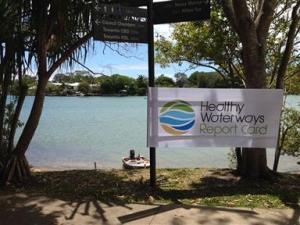
Healthy Waterways invites you to attend the 2015 Report Card launch on: Thursday 22 October 2015 at 11.30am to 12.30pm.
This year, Healthy Waterways has evolved the Monitoring Program and Report Card to assess the benefits the community receives from our waterways, and the actions they undertake to protect and improve waterway health.
This holistic approach to reporting will provide the insight and information to drive best-practice waterway management to achieve environmental outcomes and enhance the community’s quality of life.
The Report Card launch is a culmination of 12 months of scientific monitoring throughout the region, with results independently assessed and verified by apanel of scientific experts.
The launch is held simultaneously in four locations across South East Queensland: For more details click through to the Report Card – Launch invitation
Register to attend your local launch before Friday 16 October to reportcard@healthywaterways.org nominating your launch location.
- Dr Andrew O’Neill, Healthy Waterways
- Elissa McConaghy, Moreton Bay Regional Council
- Josie Raftery, Toowoomba Regional Council
- Kym Whiteoack, RMCG
- Tony Costantini, Planfuture (representing Port of Brisbane)
The Forum will be facilitated by Belinda Chapman from Working Wheel.
Speaker Biographies:

biogeochemistry of constructed wetlands treating acid mine drainage, Andrew conducted research into the disposal of high level nuclear waste in deep rock aquifers in Sweden, degraded river and lake systems in Indonesia, Canada and the USA and natural wetlands and hot springs in Yellowstone and Kamchatka. Andrew has been responsible for the design and delivery of high profile integrated water policy and water sensitive urban design projects in both the public and private realm, and supports uptake of sustainable urban water management with both Australian and international professionals and students.
Elissa McConaghy is a Senior Strategic Planner at Moreton Bay Regional Council with over 10 years’ experience in strategic land use and infrastructure planning. Elissa graduated from Griffith University with a Bachelor of Environment Planning in 2003 and has experience in the fields of development assessment, park and open space planning and design, planning scheme and policy development and infrastructure network planning and charging. Elissa currently manages Moreton Bay Regional Council’s strategic water program covering total water cycle management, floodplain management, and coastal management.
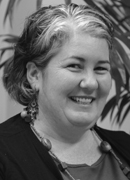
She is passionate about the future, understanding the bigger picture and planning based on good evidence. Her approach to planning is aims to build communities by breaking down silos and finding better ways to communicate expertise.
In her current role, Josie is focussed on the planning and design of public infrastructure for multiple uses to deliver efficiency and better urban design. This includes her focus on the integration of stormwater management with public open space considering the range of values and expectations placed on Toowoomba’s local creeks.

Kym Whiteoak is a Senior Economist with RMCG with expertise in the economic assessment of water quality offsets and the cost-effectiveness of water quality improvement actions. Kym is currently assisting a Victorian water business design, assess and implement a water quality offset, and has assisted many councils and water businesses compare the cost-effectiveness of different stormwater management options as part of integrated water management plans.
Emma O’Neill is the Coordinator (Integrated Water Management) at Ipswich City Council.
Emma has a background in environmental management and planning and in 2015 completed the International Water Centre’s Water Leadership Program as a recipient of the Healthy Waterways Erosion and Sediment Control Leadership scholarship.
Recently Emma project managed (in conjunction with consultants BMTWBM) the development of a robust and transparent framework to guide the use of funds collected under Council’s stormwater quality offsets scheme.
Prior to her role at ICC Emma worked in the Hawke’s Bay in New Zealand dealing with complex water management challenges including assessment of impacts of oil exploration on receiving environments, review of urban stormwater management programs, and highly contentious water allocation projects.
Sally Boer, Stormwater Queensland
This forum will provide the opportunity to develop a common appreciation of associated issues, complexities and future planned activities.
- To improve understanding of innovative pathways for stormwater quality management including but not limited to offsets.
- To improve understanding of current and future planned activities to innovate pathways for stormwater quality management including by not limited to offsets.
- To augment the development of the Stormwater Queensland position statement on innovative pathways for stormwater quality management including but not limited to offsets.
|
Member
|
$190.00
|
|
Non Member
|
$230.00
|
|
Student
|
$120.00
|

Stormwater Queensland will be holding the association’s End of Year Drinks directly after the Stormwater Quality Offsets Forum from 4.30 pm to 7.00 pm.
Come join the Stormwater Queensland committee for a few drinks and canapes to celebrate a year of achievements in the Stormwater Industry and take the opportunity to have a chat to industry friends and colleagues.
Registration to attend this event is free of charge.
If you would like to attend the Stormwater Queensland End of Year Drinks, please register at https://www.secureregistrations.com/SQNOV2015/.
Should you have any questions regarding this event, please contact the Stormwater Queensland Secretariat on 1300 721 220.
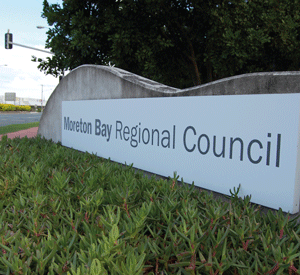
The new Moreton Bay Regional Council Planning Scheme will commence on 1 Febraury 2016. This is the first time since amalgamation that a clear, consolidated strategic planning vision has been established for the entire Moreton Bay Region.
You are invited to a briefing session on the new scheme hosted by Council’s planning staff.
To register and for more details please click here.
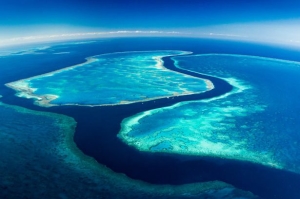
The Great Barrier Reef Water Science Taskforce is seeking feedback on its Interim Report which sets out initial recommendations to the Queensland Government on how to deliver substantial reef water quality improvements.
The River Basin Management Society (RBMS) would like to make a submission on behalf of its members. To gather feedback from its members the RBMS would like to host a reading group in Brisbane on the 2nd of Febraury. The Interim Report can be found here.
“It would be great to hear from our members and anyone new who would like to provide feedback on the initial recommendations. If you are unable to attend the reading group but would like to provide feedback please email info@rbms.com.au. Hope to see you there!” – RBMS Committee
To register or for further enquiries click here
The River Basin Management Society presents the award winning documentary “Lost Rivers” Screening.
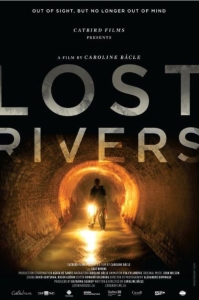
ABOUT THE DOCUMENTARY:
Once upon a time, in almost every industrial city, countless rivers flowed. We built houses along their banks. Our roads hugged their curves. And their currents fed our mills and factories. But as cities grew, we polluted rivers so much that they became conduits for deadly waterborne diseases like cholera, which was 19th century’s version of the Black Plague. Our solution two centuries ago was to bury rivers underground and merge them with sewer networks.
Today, under the city, they still flow, out of sight and out of mind… until now. That’s because urban dwellers are on a quest to reconnect with this denigrated natural world. Lost Rivers takes us on an adventure down below and across the globe, retracing the history of these lost urban rivers by plunging into archival maps and going underground with clandestine urban explorers. We search for the disappeared Petite rivière St-Pierre in Montreal, the Garrison Creek in Toronto, the River Tyburn in London, the Saw Mill River in New York, and the Bova-Celato River in Bresica, Italy. Could we see these rivers again? To find the answer, we meet visionary urban thinkers, activists and artists from around the world.
View the trailer here
Don’t miss out – Register Here




